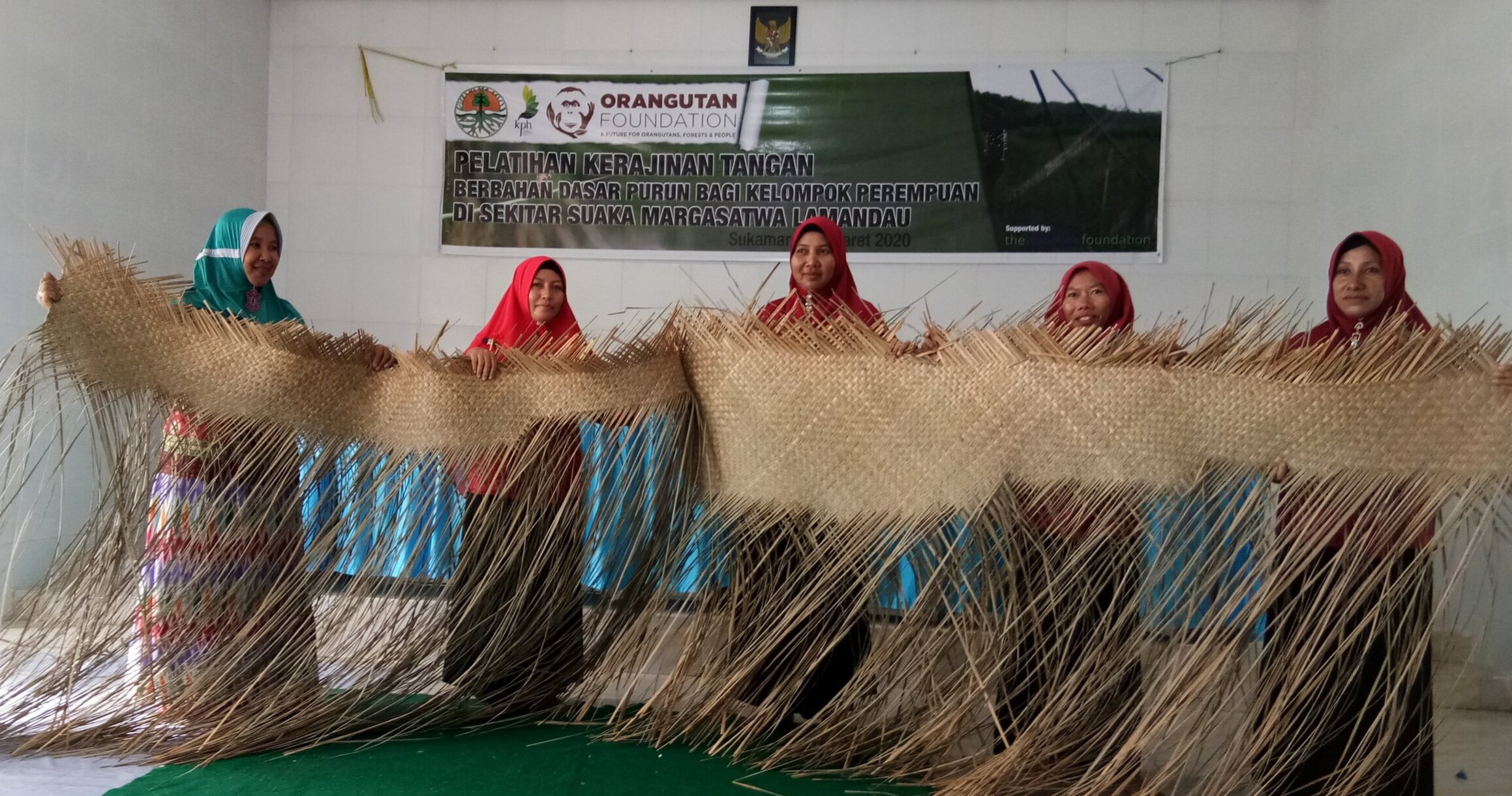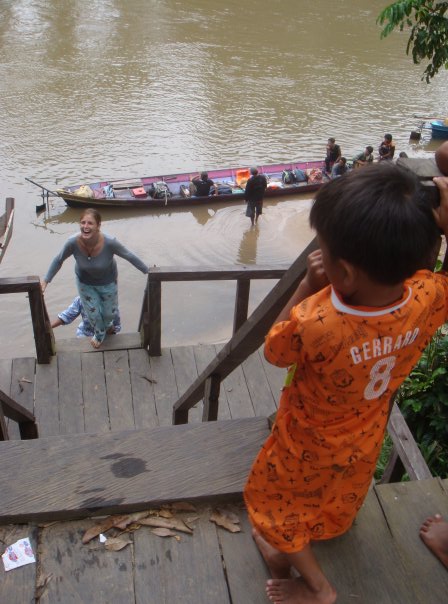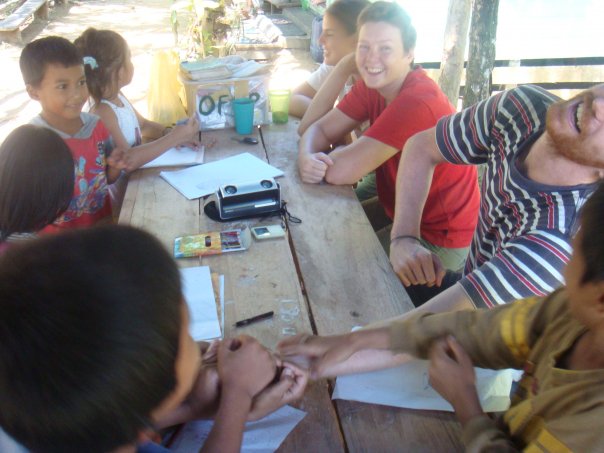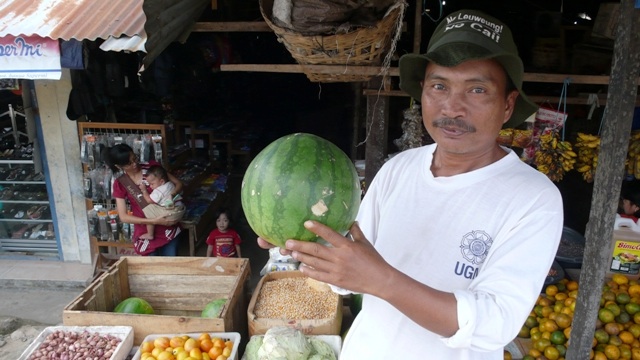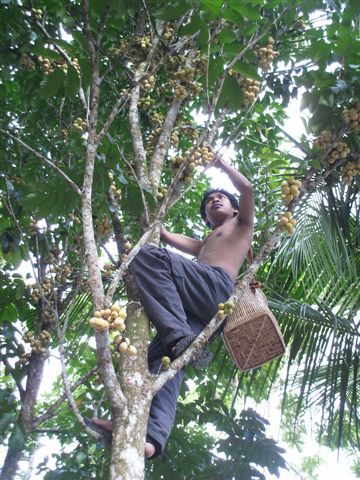“Saving orangutans by protecting their tropical forest habitat, working with local communities and promoting research and education.” - This is part of Orangutan Foundation’s mission statement, and we work hard to provide a safe and sustainable future for Orangutans, Forests and People. It’s this final value, people, that can get overlooked, but local communities often rely on tropical forest environments as much as orangutans which is why we collaborate with them on all of our programmes.
Villagers practice sustainable farming techniques, such as processing ‘nipah’ fruit into brown sugar
It’s fitting that around the time of International Women’s Day, our team were working with a women’s farming association, local NGO Yayorin, and government officials to provide an educational workshop for harvesting non-timber products (above).
It was heartening for our team to observe 40 local people, the majority women, discussing and practicing a variety of farming techniques which may help create alternative sustainable livelihoods. As well as highlighting the need to reduce plastic waste, the workshop also provided the opportunity to raise further awareness of orangutans and the necessity to protect their forest habitats.
In the same week, our team also assisted with the coordination of a craft workshop where women from nearby villages could come together and learn new weaving skills. The group worked expertly to turn strips of an abundant plant known locally as ‘purun’ into durable mats which could be used at home or sold as an alternative household income.
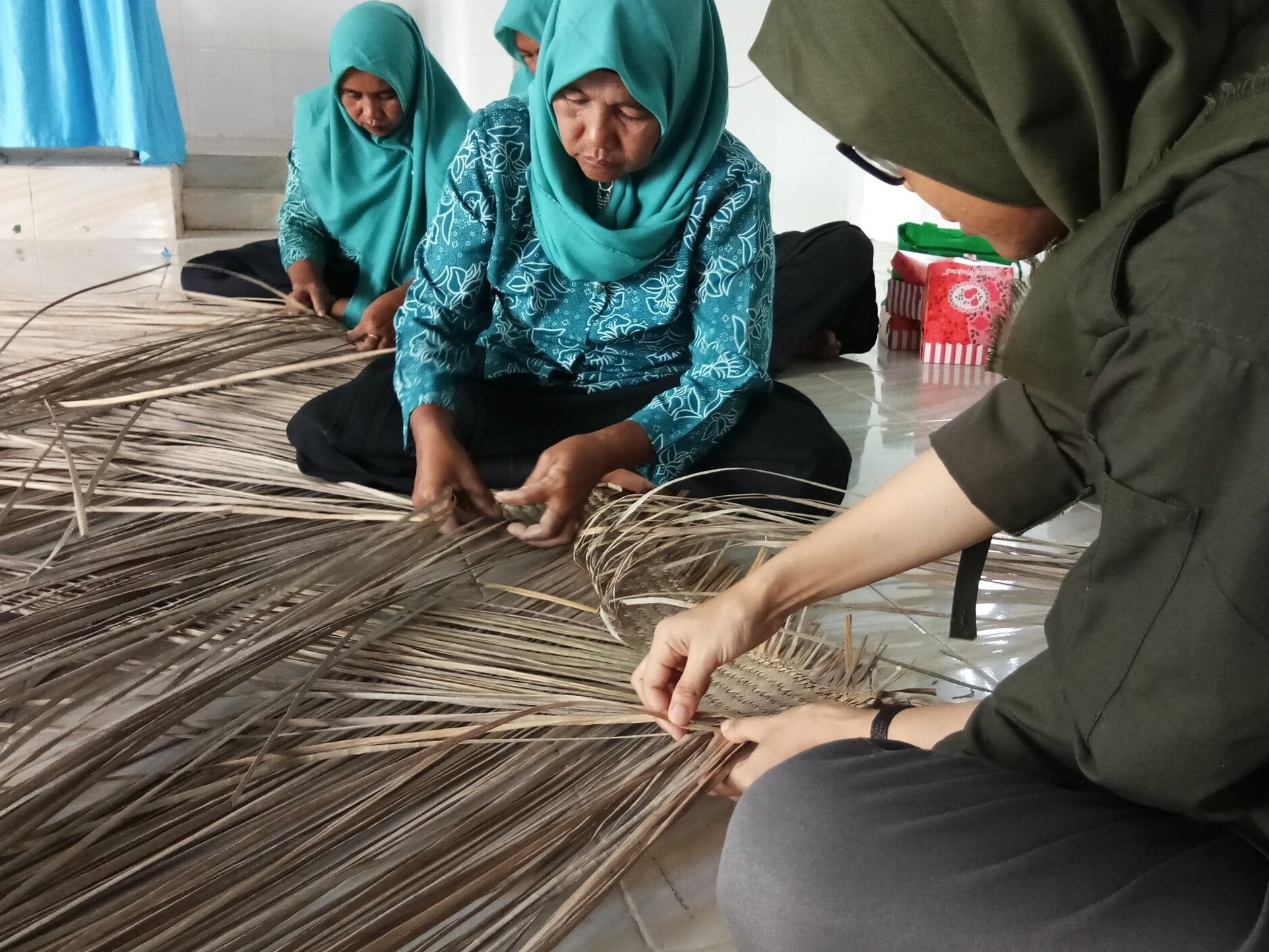
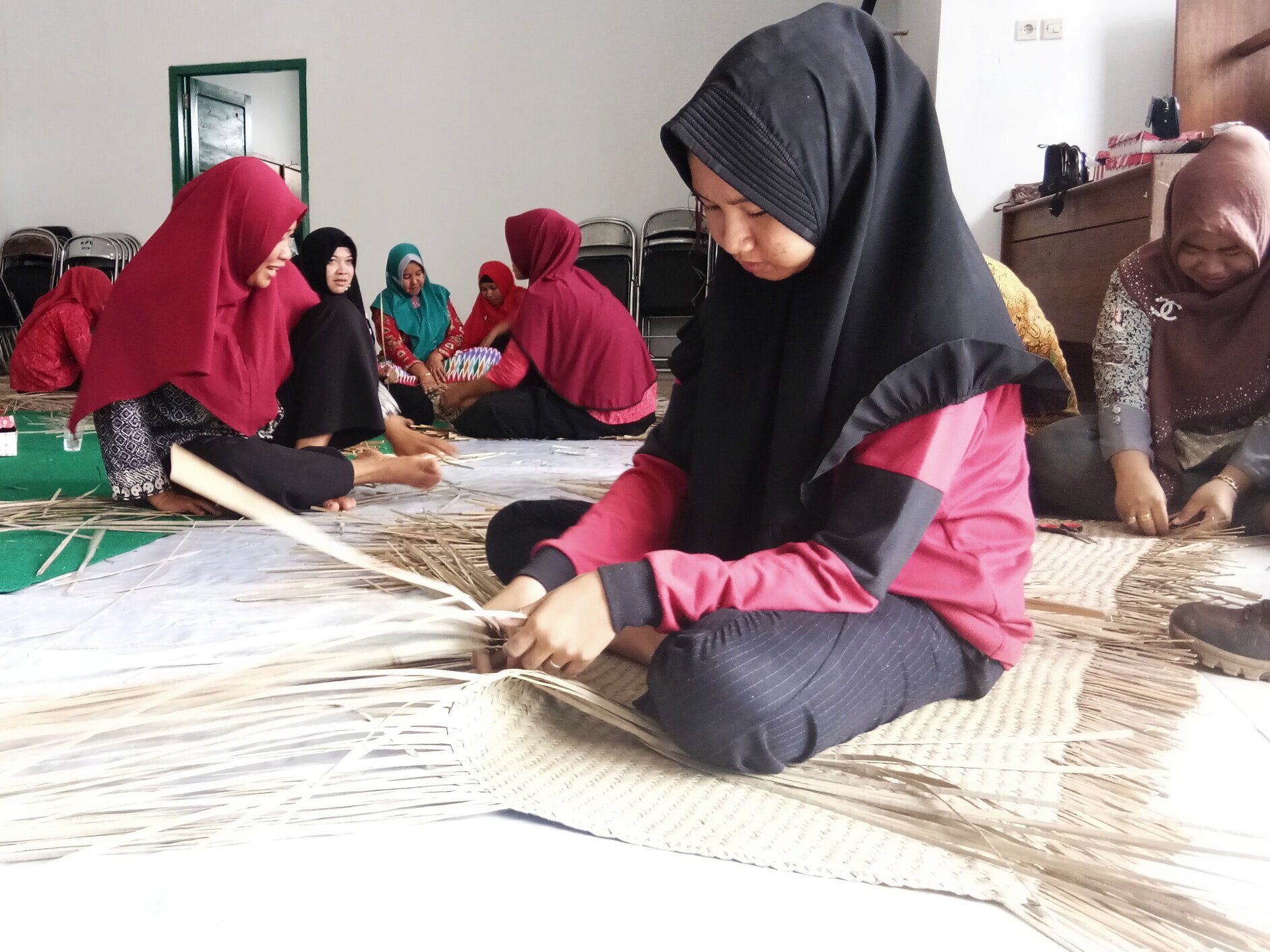
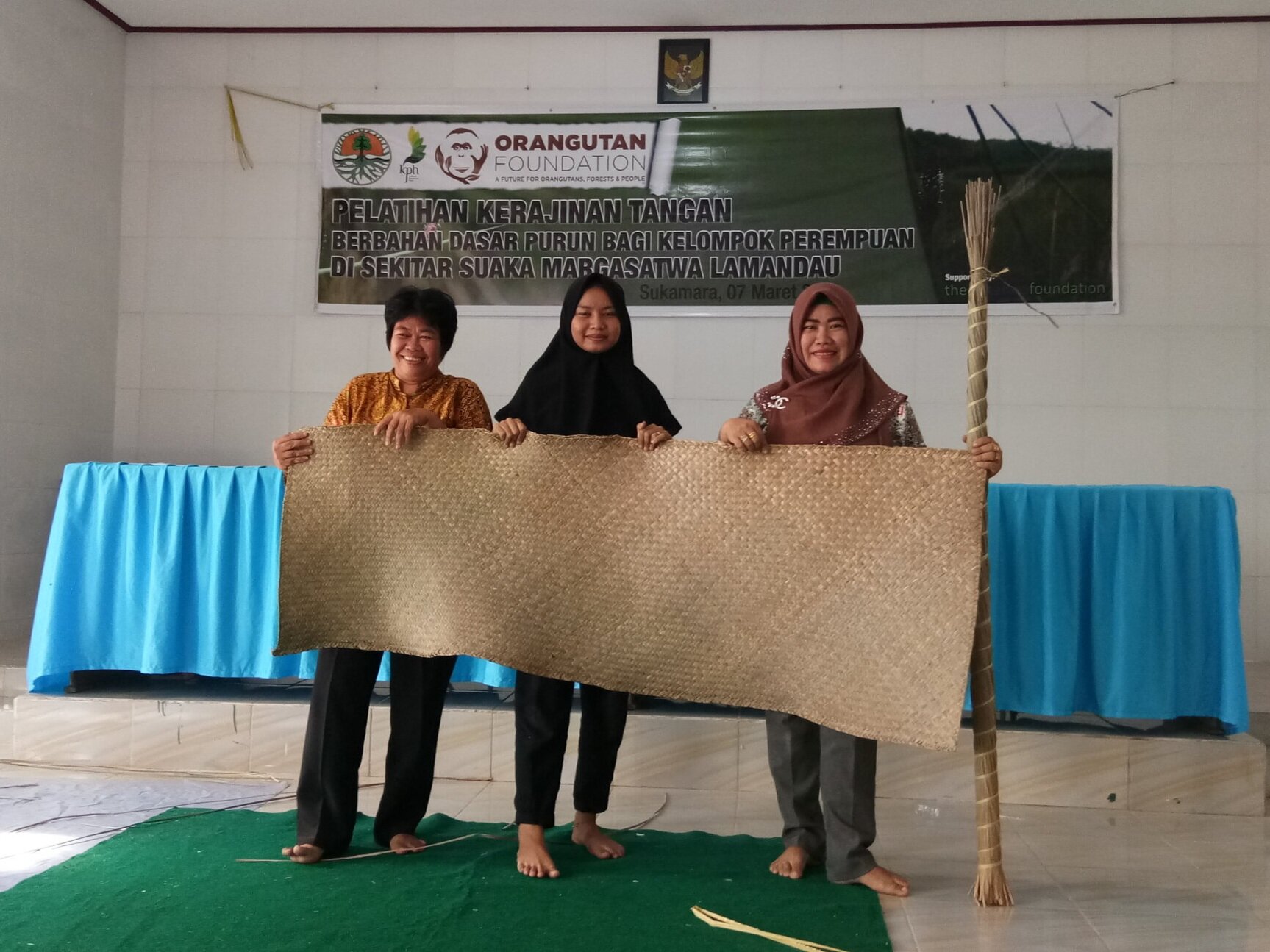
By empowering communities, especially women, to establish sustainable livelihoods; local people are not only able to generate their own natural sources of income, but are also far more likely to respect and the protect the surrounding forests and wildlife.



